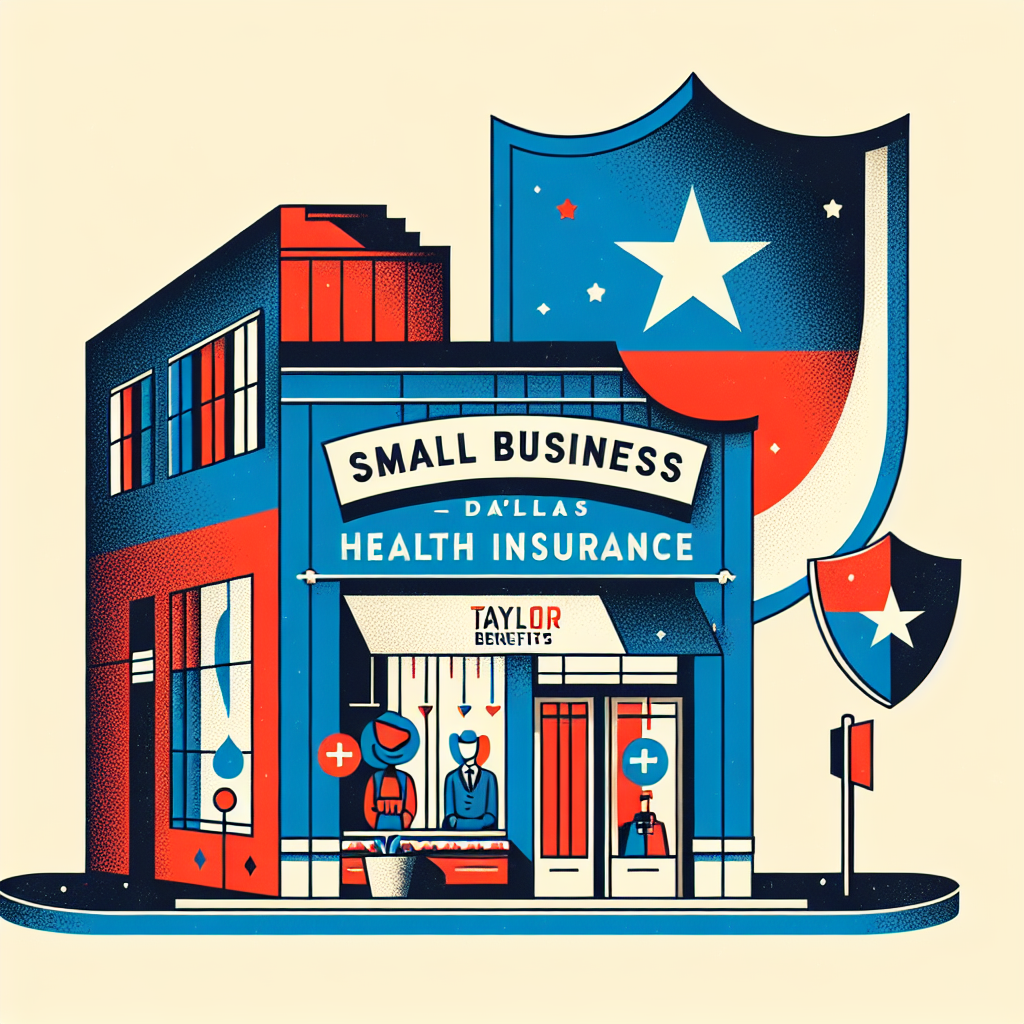Filed under Business Insurance on
Essential Guide to Small Business Insurance in Oklahoma

Running a small business in Oklahoma can be both thrilling and daunting. Among the myriad responsibilities entrepreneurs bear, securing the right insurance coverage often tops the list. Understanding the intricacies of small business insurance in Oklahoma is essential to safeguarding your investment. In this guide, we'll delve into the nuances of business insurance in the Sooner State, providing insight into coverage options, legal requirements, and tips for selecting the best policy.
Understanding the Basics of Small Business Insurance
Small business insurance is designed to protect business owners from financial losses due to a variety of risks. These can include property damage, legal claims, and employee-related issues. In Oklahoma, just like in any other state, having the right insurance policy can mean the difference between overcoming minor setbacks and facing major financial turmoil.
A well-rounded insurance plan typically includes several types of coverage. For many businesses, general liability insurance forms the backbone of their coverage strategy. This policy protects businesses against claims involving bodily injuries and property damage. However, Oklahoma businesses often require a more tailored approach, especially if they face unique risks associated with their industry.
Types of Small Business Insurance Available in Oklahoma
General Liability Insurance
As the cornerstone of business insurance, general liability insurance covers common business risks. It protects your business when you or your employees cause bodily injury or property damage to third parties. Given the litigious nature of today's business environment, having general liability insurance is crucial.
Commercial Property Insurance
If you own or lease commercial property in Oklahoma, this type of insurance protects your physical assets against risks such as fire, theft, and natural disasters. Oklahoma's propensity for storms makes this coverage particularly pertinent to ensure resilience against potential weather-induced damages.
Professional Liability Insurance
Known also as Errors and Omissions (E&O) insurance, professional liability insurance is essential for businesses offering professional services. This coverage provides protection against claims of negligence or failing to perform professional duties adequately, making it vital for consultants, lawyers, and architects.
Workers’ Compensation Insurance
Under Oklahoma law, employers with one or more employees are required to carry workers' compensation insurance. This policy covers medical costs and lost wages for employees who get injured or fall ill due to their job, ensuring both compliance and employee welfare.
Business Owner’s Policy (BOP)
A Business Owner's Policy is an attractive option for small businesses, combining several insurance covers into a single package, usually at a lower premium. A BOP typically bundles general liability and property insurance, and can also include business interruption insurance for added protection.
Legal Requirements for Small Business Insurance in Oklahoma
While not all types of insurance are mandatory for Oklahoma businesses, certain policies may be legally required depending on the nature of your business and its structure.
Workers' Compensation Requirements
As mentioned, Oklahoma mandates workers' compensation insurance for businesses with employees. This requirement is vital, not just for compliance, but for protecting your business from potential lawsuits stemming from workplace injuries.
Commercial Auto Insurance Requirements
For businesses that own vehicles, commercial auto insurance is mandatory. This coverage is crucial, as it provides protection against liabilities arising from the operation of business vehicles, including damage and injury claims.
Assessing Your Insurance Needs
Understanding the type and scope of insurance required for your specific business is pivotal. Start by assessing the risks associated with your industry and location. For instance, if your business operates in a high-risk sector such as construction, you may need additional coverage such as builder’s risk insurance. Similarly, businesses located in storm-prone areas might need enhanced property insurance or flood insurance.
Consider working with an insurance agent who is familiar with the Oklahoma market. An expert can provide tailored advice and assist in navigating the various options, ensuring you secure optimal coverage.
Tips for Choosing the Right Insurance Provider
- Experience and Reputation: Opt for insurers with a strong track record and positive customer reviews. Consider asking peers in your industry for recommendations based on their experiences.
- Financial Stability: Ensure your provider has the financial strength to pay claims, which can be checked through ratings from agencies such as A.M. Best or Standard & Poor’s.
- Customizable Policies: Choose providers who offer customizable policy options to fit your unique business needs, rather than a one-size-fits-all approach.
- Claims Process: A streamlined and efficient claims process is crucial. Read about the providers’ claims management strategies to ensure they align with your expectations.
- Customer Support: Excellent customer service cannot be overstated. You want a provider that is easy to reach and responsive to queries, especially in times of crisis.
Managing Insurance Costs: Saving Strategies
Insurance premiums can be a significant expense. However, there are strategies small business owners in Oklahoma can employ to keep these costs manageable without sacrificing coverage quality.
- Shop Around: Comparing quotes from multiple insurers can help identify the most economical options. Many online platforms can assist in generating comparative quotes.
- Bundle Policies: Consolidate your insurance needs by opting for a Business Owner’s Policy or bundling general and property liabilities. Providers often offer discounts for bundled policies.
- Increase Deductibles: Higher deductibles usually mean lower premiums. Evaluate the risk you are willing to take on in exchange for lower costs.
- Implement Safety Programs: Establishing workplace safety programs can reduce risks, potentially leading to lower insurance premiums over time.
- Review Annually: Regularly review your policies to ensure they align with your current business needs. As your business evolves, so should your coverage.
The Future of Small Business Insurance in Oklahoma
The small business insurance landscape in Oklahoma continues to evolve with emerging risks and shifting consumer expectations. Cyber insurance, for example, is becoming increasingly important as businesses of all sizes face growing threats from cyberattacks. Moreover, the push for more eco-friendly and sustainable business practices may lead to tailored insurance products addressing these new enterprises.
Staying informed about industry trends and legislative changes impacting business insurance is essential. Regular consultations with insurance experts can keep you ahead of the curve, ensuring your coverage remains robust and compliant with Oklahoma's laws.
Conclusion
Securing small business insurance in Oklahoma is a fundamental step in building a resilient enterprise. By understanding the various coverage options, legal requirements, and strategies for optimizing your insurance policies, you can protect your business against unforeseen challenges. With careful planning and the right partnerships, you can focus on growing your business with confidence, knowing you're prepared for whatever comes your way.





